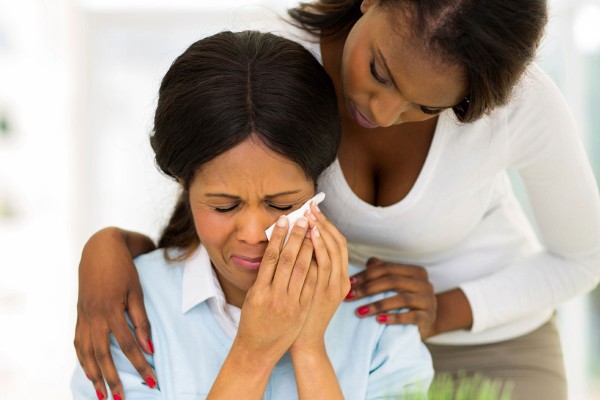I was driving along Dodge Street on a Friday afternoon. Rush hour traffic. As I stopped for the red light in front of Children’s Hospital and Medical Center, my mind was on pizza and movie night.brI needed to order the pizza, swing by the video…
BOOM!
My van shook like it had been hit by a bomb. The sound was deafening. I saw a big truck bounce away from me, towards oncoming cars, and then back into traffic—where it hit another van that I later learned was full of children.
My mind went blank. And then I started shaking.
Police came (lots of them), but no ambulances. Incredibly, no one was hurt. The little kids in the other van were weepy, but physically fine. We exchanged information, waited on the police report, and watched the truck driver go away in the back of a police car. My husband helped me get my damaged van home.
All okay, right?
Well, actually. No. All weekend, I was jumpy and shaky. I kept trying to brush it off. But come Monday morning, I went to climb into my husband’s car to drive to work. It would be the first time I drove alone on the same street as the wreck.
I looked at my beat-up van. I didn’t want to get into the car. I had to force myself into the seat—to turn the key—to open the garage door. Things that were usually just automatic took conscious effort. I realized that the accident had affected me more than I even realized.
I share this because trauma is a sneaky thing. And recognizing it, both in yourself and especially in your children, is extremely important. The sooner someone receives therapy after major trauma, the sooner he or she can recover. My trauma was minor, but it still impacted my emotions and my behavior. Now, imagine a child experiencing or witnessing major trauma. Untreated trauma can negatively impact a child’s behavior and decision-making as a teen and well into adulthood.
Children learn what they live, and those who grow up in homes with violence are repeatedly subjected to traumatic experiences. They are far more likely to continue that pattern into their adult lives. Short-term, they are likely to demonstrate behavioral, social, and emotional problems, as well as have trouble in school. Long term, little boys who grow up in violent homes are more likely to become abusers, and little girls are more likely to choose partners who abuse them. These children grow up with higher levels of depression and anxiety.
Therapists will tell you that significant trauma experiences can cloud your self-image and all of your decision-making. Getting those traumas into perspective can truly be life-changing. If you or your child has been affected by violence or other trauma, please contact Lutheran Family Services. Services are provided on a sliding scale so you can get the help you need. Please do it as soon as you can.














